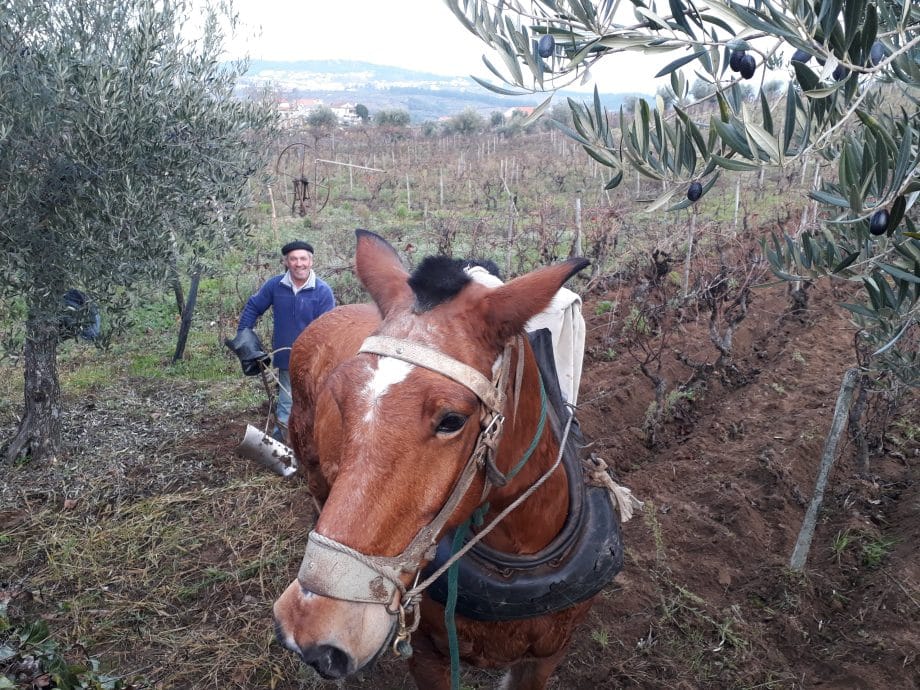The Douro Valley, known for its breathtaking landscapes and world-renowned wines, is also a place where tradition meets innovation. Among the enduring customs that define the region is the use of horses for plowing in the narrow terraced vineyards. This age-old practice, still prevalent in areas like Provesende and Pinhão, is not just a nod to history but a vital method for preserving the delicate balance of the Douro’s unique terroir.
Why Horses Are Ideal for Douro Valley Vineyards
The terraced vineyards of the Douro Valley are a feat of engineering, carved into steep hillsides with inclines exceeding 30%. These terraces, built over centuries, are too narrow and fragile for most modern machinery. Horses provide an environmentally friendly and practical solution for working the land, offering several benefits:
- Maneuverability: Horses can navigate the narrow terraces and steep inclines that tractors and machines cannot access.
- Soil Preservation: Unlike heavy machinery, horses minimize soil compaction, preserving the health and structure of the delicate shale-based soil.
- Sustainability: Using horses reduces the carbon footprint of vineyard maintenance, aligning with eco-conscious winemaking practices.
The Role of Horses in Vineyard Management
Horses are primarily used for tasks such as:
- Plowing: Turning the soil to aerate it, control weeds, and incorporate organic matter.
- Fertilizer Application: Distributing natural compost without harming the vineyard’s structure.
- Harvest Assistance: In some cases, horses are used to transport harvested grapes from terraces to collection points.
This practice ensures the vineyards are maintained with care, supporting the production of high-quality Douro wine while respecting the region’s natural environment.
A Tradition Rooted in History
The use of horses in the Douro Valley dates back centuries. Before the advent of machinery, horses and mules were indispensable to the region’s winemaking operations. Today, this tradition is preserved by both small family-run quintas and larger wineries dedicated to sustainable viticulture.
In villages like Provesende, you can still witness horses plowing the vineyards, a testament to the timeless bond between nature and winemaking.
Sustainability and Organic Winemaking
At organic wineries like Marmelão, horses play a crucial role in sustainable practices. By reducing reliance on machinery and chemicals, this approach fosters a healthier vineyard ecosystem and enhances the expression of the Douro Valley’s terroir in every bottle of wine.
Experiencing the Tradition
For visitors to the Douro Valley, seeing horses at work in the vineyards is a unique and unforgettable experience. Many Douro wine tours and Douro tours include stops at traditional quintas where you can:
- Watch horses plow the terraces.
- Learn about the history and significance of this practice.
- Taste wines crafted with the care and sustainability that define the region.
In Pinhão, you can combine your visit with a scenic boat tour or train ride, while Provesende offers a quieter glimpse into the region’s rich agricultural traditions.
A Living Symbol of the Douro Valley
The use of horses in the Douro Valley’s vineyards is more than a practical choice; it’s a symbol of the region’s deep respect for its land, history, and traditions. Whether you’re a wine lover, history enthusiast, or eco-conscious traveler, this tradition embodies the essence of the Douro Valley.
Plan Your Douro Valley Adventure
From the narrow terraces of Provesende to the bustling riverside charm of Pinhão, the Douro Valley invites you to experience its unique winemaking heritage. Book a Douro wine tour today to discover the beauty of traditional plowing and the exquisite wines it helps create.



